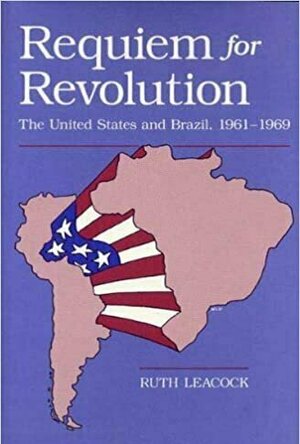Requiem for Revolution: United States and Brazil, 1961-69
BookThis item doesn’t have any media yet
1990 | History & Politics
An examination of the Brazilian revolution of 1964 which was not the ""revolutionary effort"" that Kennedy had sought. Yet it bore an American, anti-communist imprint. When the president was overthrown, Washington embraced the new regime and gave generous support throughout the 1960s. Kennedy had pressed his aides to define a new doctrine of counterinsurgency. As constructed to fit the American reading of the Brazilian situation, the doctrine called for covert operations to get conservative anticommunists elected to the Brazilian Congress, to arm and train anticommunist guerrillas and to mobilize businessmen, military officers, housewives, priests and students in an anticommunist crusade. Simultaneously there was to be overt pressure on the Brazilian government by State Department officials and by special White House emissaries. The pattern did not have to be reinvented for Central America in the 1980s.
Related Items:
| Published by | The Kent State University Press |
Images And Data Courtesy Of: The Kent State University Press.
This content (including text, images, videos and other media) is published and used in accordance
with Fair Use.
